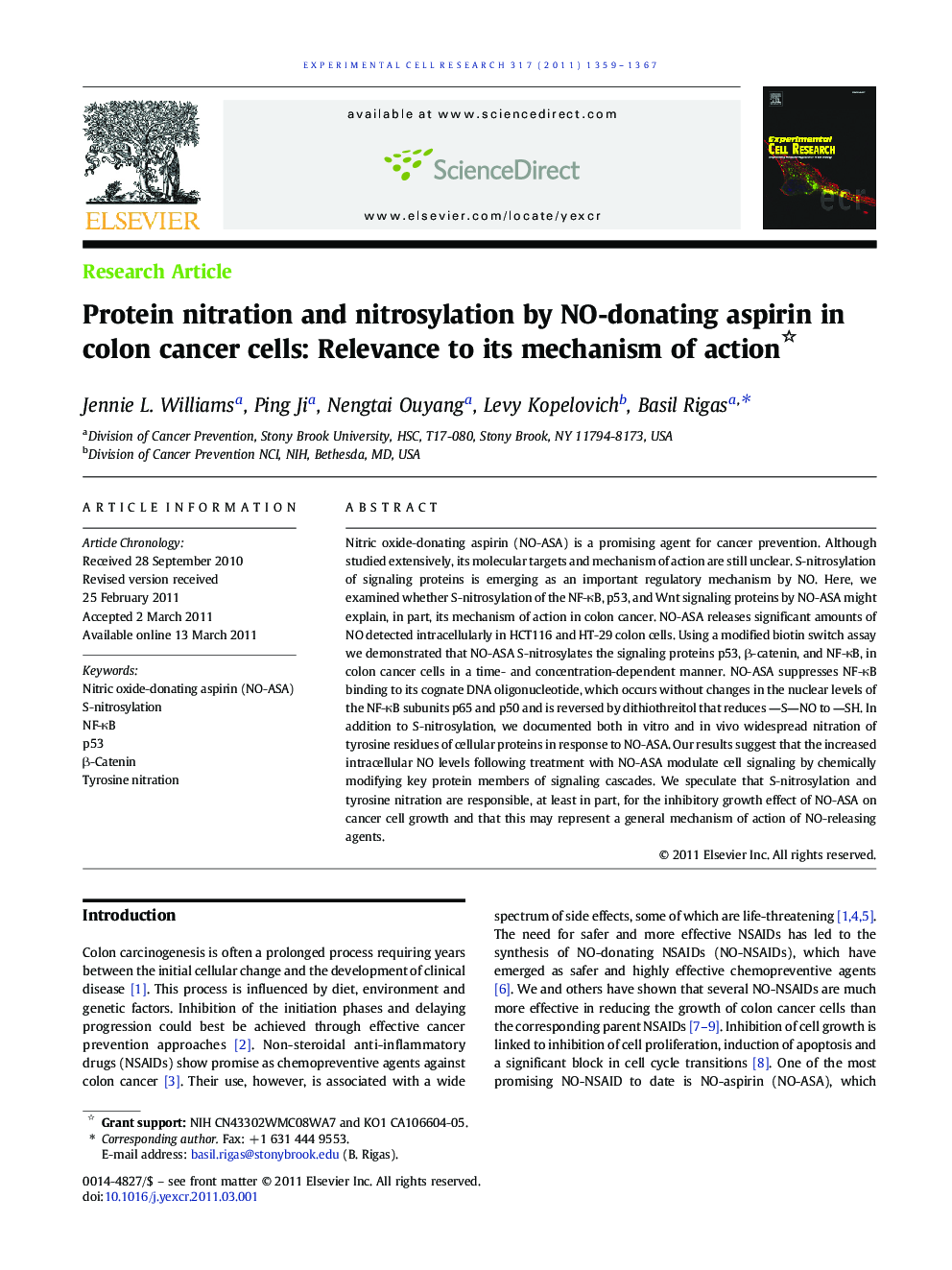| Article ID | Journal | Published Year | Pages | File Type |
|---|---|---|---|---|
| 2131119 | Experimental Cell Research | 2011 | 9 Pages |
Nitric oxide-donating aspirin (NO-ASA) is a promising agent for cancer prevention. Although studied extensively, its molecular targets and mechanism of action are still unclear. S-nitrosylation of signaling proteins is emerging as an important regulatory mechanism by NO. Here, we examined whether S-nitrosylation of the NF-κB, p53, and Wnt signaling proteins by NO-ASA might explain, in part, its mechanism of action in colon cancer. NO-ASA releases significant amounts of NO detected intracellularly in HCT116 and HT-29 colon cells. Using a modified biotin switch assay we demonstrated that NO-ASA S-nitrosylates the signaling proteins p53, β-catenin, and NF-κB, in colon cancer cells in a time- and concentration-dependent manner. NO-ASA suppresses NF-κB binding to its cognate DNA oligonucleotide, which occurs without changes in the nuclear levels of the NF-κB subunits p65 and p50 and is reversed by dithiothreitol that reduces ―S―NO to ―SH. In addition to S-nitrosylation, we documented both in vitro and in vivo widespread nitration of tyrosine residues of cellular proteins in response to NO-ASA. Our results suggest that the increased intracellular NO levels following treatment with NO-ASA modulate cell signaling by chemically modifying key protein members of signaling cascades. We speculate that S-nitrosylation and tyrosine nitration are responsible, at least in part, for the inhibitory growth effect of NO-ASA on cancer cell growth and that this may represent a general mechanism of action of NO-releasing agents.
